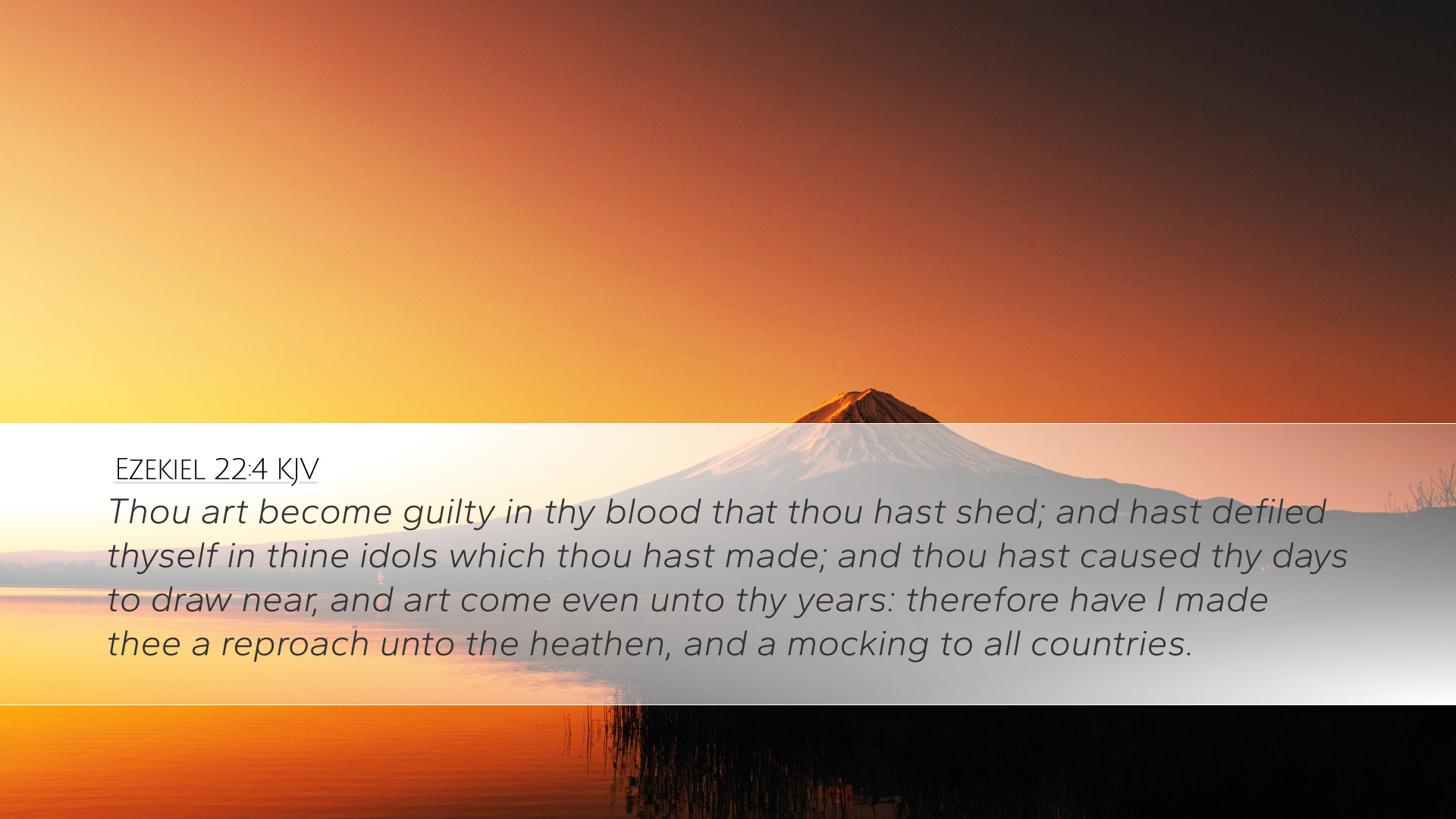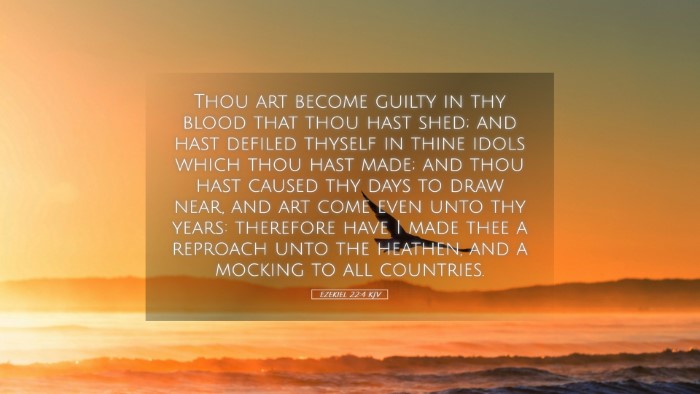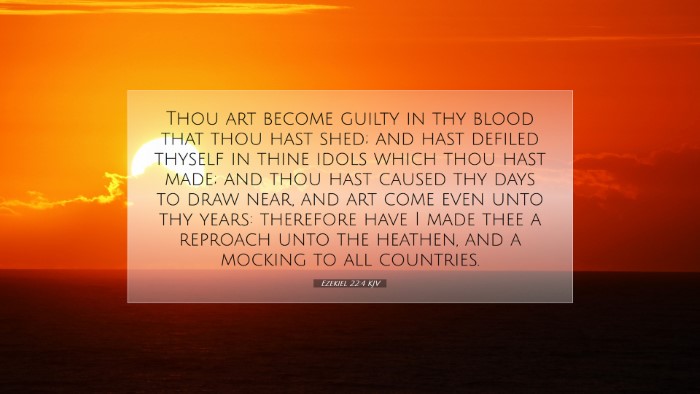Bible Commentary on Ezekiel 22:4
Ezekiel 22:4: "Thou art become guilty in thy blood that thou hast shed; and hast defiled thyself in thine idols which thou hast made; and thou hast caused thy days to draw near, and art come even unto thy years: therefore have I made thee a reproach unto the heathen, and a mocking to all countries."
Introduction
This verse is a profound excerpt from the prophetic messages of Ezekiel, addressing the dire spiritual condition of Jerusalem. Ezekiel’s oracles often reflect God's discontent with Israel's unfaithfulness, highlighting themes of judgment and impending restoration. The insights drawn from historic commentaries reveal layers of meaning pertinent for modern readers, especially pastors, students, theologians, and scholars.
Contextual Overview
Ezekiel was a prophet during a time of turmoil for the Israelites, particularly after the Babylonian exile. His prophecies often carried a stern tone, calling out the sins of the people. This verse encapsulates several critical elements: guilt, idolatry, cosmic judgment, and reproach.
Commentary Insights
1. The Weight of Guilt
Matthew Henry underscores the concept of guilt as a heavy burden. He notes that the shedding of blood signifies a deep moral failing among the people. This echoes through the history of Israel marked by violence, injustice, and a rejection of divine law.
Reflection for Today's Context
This serves as a solemn reminder for contemporary believers to confront the impact of sin both personally and collectively. The idea of guilt is not solely an ancient concept but speaks to the moral responsibility that lies on modern communities and nations.
2. The Defilement of Idolatry
Albert Barnes comments extensively on the idea of defilement through idols. The stark image of bloodshed paired with idolatry illustrates a profound departure from covenant faithfulness. Idolatry leads not only to personal corruption but communal decay, eroding the foundations of societal ethics.
Implications for Worship Today
In our current societal context, this prompts vital questions about modern forms of idolatry—materialism, unauthorized practices, and misplaced allegiances that can easily overshadow devotion to God. The call to purity and true worship remains as relevant as ever.
3. The Cause of Impending Judgment
Adam Clarke provides a detailed analysis of the impending judgment as something that draws near due to the persistent disobedience of the people. “Thou hast caused thy days to draw near” speaks to the notion that their actions have cultivated a reality wherein judgment is unavoidable.
Understanding Divine Justice
This understanding of divine justice suggests a cosmic order where actions bear consequences. For pastors, this reveals the urgency of preaching repentance and righteousness, reaffirming God’s holiness and the necessity of pursuing a life aligned with His will.
4. The Reproach Among the Nations
The final section of the verse, addressing Jerusalem as a “reproach unto the heathen,” is pivotal. Matthew Henry notes that this shame was a public declaration of their failure to reflect God’s glory. Their identity as a covenant people was marred and dishonored before other nations.
Consequence of Identity Misalignment
For modern believers, this revelation emphasizes the weight of identity in Christ. There is a calling to embody the virtues of the Kingdom, serving as a light to the nations. Misalignment with God’s character can transform a testimony into a source of ridicule.
Conclusion
The verse from Ezekiel 22:4 stands as a stark reminder of the consequences of sin, the seriousness of idolatry, and the nature of divine judgment. Through a synthesis of insights from Matthew Henry, Albert Barnes, and Adam Clarke, we gain a textured understanding of the text.
As we reflect on this scripture, let us be encouraged to pursue holiness, reject idolatry, recognize the weight of our corporate and individual sins, and embrace our identity as representatives of Christ. Pastors can find in this text a powerful tool for guiding congregations towards a faithful and upright life in acknowledgment of divine accountability.
Actionable Steps for Ministry
- Encourage Accountability: Foster environments where individuals can confess and confront sin openly.
- Focus on Holistic Worship: Address contemporary forms of idolatry and guide congregations back to a pure worship of God.
- Teach on Divine Justice: Help believers understand that God’s justice is both loving and necessary, with teachings rooted in this part of Scripture.
- Promote Community Integrity: Urge communities to reflect the Kingdom of God in actions, thoughts, and social justice initiatives.


